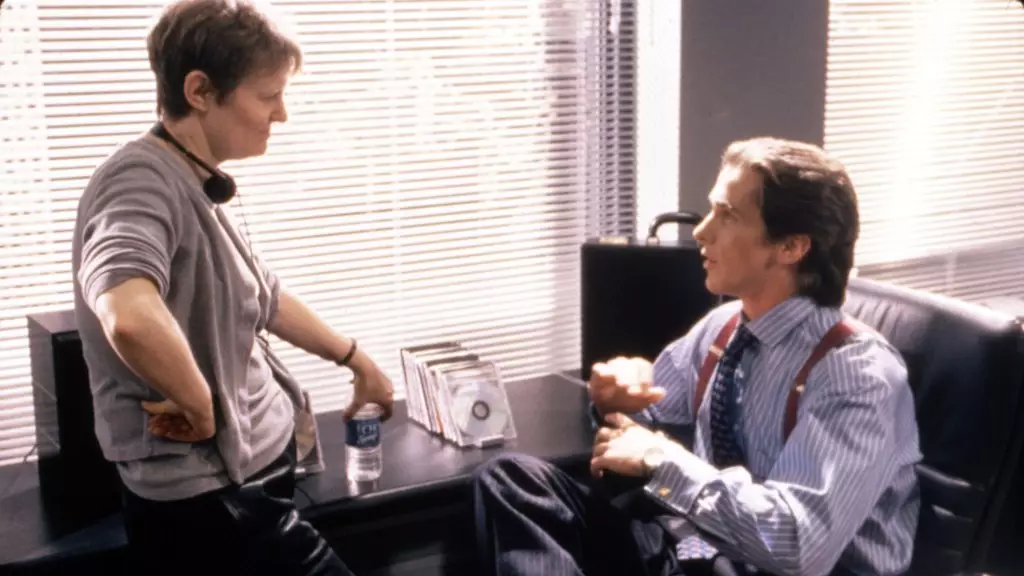The 25th anniversary of “American Psycho” invites us to engage in a profound reevaluation of a film that has sparked endless discourse since its inception. Directed by Mary Harron, this darkly satirical take on hypermasculinity and consumer culture has taken on renewed significance in our current socio-political climate, particularly in light of a second Donald Trump presidency. Harron’s insights provide a fascinating lens through which we can examine the ongoing misinterpretation and evolution of the film’s themes.
While many have embraced “American Psycho” superficially, it is crucial to delve deeper to grasp its full context and critique of society. Harron notes a troubling reality: a predatory culture has not only persisted but intensified, with socioeconomic disparities becoming ever more pronounced. The commentary is stark: the rich are significantly richer, and the poor increasingly marginalized within an unforgiving capitalist framework. In Harron’s eyes, the film’s critique resonates more loudly today, as the blatant glorification of racism, sexism, and elitism has become alarmingly prevalent within mainstream discourse.
The Misunderstood Satire
What is baffling, however, is the manner in which many viewers have misread the film as a celebration of its antagonist, Patrick Bateman, instead of recognizing him as a grotesque representation of societal decay. The film’s lead, Christian Bale, delivers a performance that is so meticulously crafted it arguably critiques rather than glorifies Bateman’s volatile life. Harron emphasizes that she and co-writer Guinevere Turner intended to illustrate a satirical lens through which viewers could see the absurdity of hypermasculine norms.
Harron points out that the male camaraderie depicted in “American Psycho” is often laced with homoerotic undertones, which signifies a complex relationship with masculinity. This perspective not only challenges traditional gender norms but also highlights the hidden layers of male competition that can undermine genuine connections among men. The film’s exploration of how masculinity can manifest in obsession with appearances and material possessions resonates even more than it did two decades ago.
Young Women Embracing the Message
Interestingly, it is young women who have begun to champion “American Psycho” in recent years—a shift from its initial reception that largely leaned on male audiences. Harron expresses joy at this new appreciation, especially given the backlash the film received upon its release in 2000. Many critics attacked both the film and the source material without a foundational understanding of its themes. While the narrative undeniably delves into graphic violence, Harron argues that this serves as a poignant critique of a society that celebrates greed and commodification at the expense of human decency.
The emergence of a female audience reinterpretating the film is a significant cultural moment, underlining the broader discourse around femininity and agency in contexts dominated by toxic masculinity. This engagement is indicative of a rising awareness among young women about the nuances of feminist critique present in “American Psycho.” Rather than merely viewing it as a horror satire, they are extracting lessons about the dangers of unchecked power and the importance of solidarity against oppressive ideologies.
The Timeless Nature of “American Psycho”
As discussions around “American Psycho” continue to evolve, so does its legacy. With a reboot on the horizon under the direction of Luca Guadagnino, the film is poised to attract a fresh wave of viewers. The adaptation speaks to the timelessness of Harron and Turner’s themes, particularly when articulated by a new generation of filmmakers and writers. In an era riddled with political and moral ambiguity, the need for critical reflections on society’s darkest corners remains essential.
This revival reflects not only an enduring fascination with the film’s stylish aesthetic but also the ever-relevant discourse surrounding masculinity, exploitation, and societal critique. The conversations initiated by “American Psycho” remain vital; they challenge us to confront our complicity in the very structures that perpetrate inequality and violence. The challenge for the new adaptation will be to honor this legacy while engaging contemporary audiences with the same chilling relevance that made the original film a landmark project in cinematic history.
